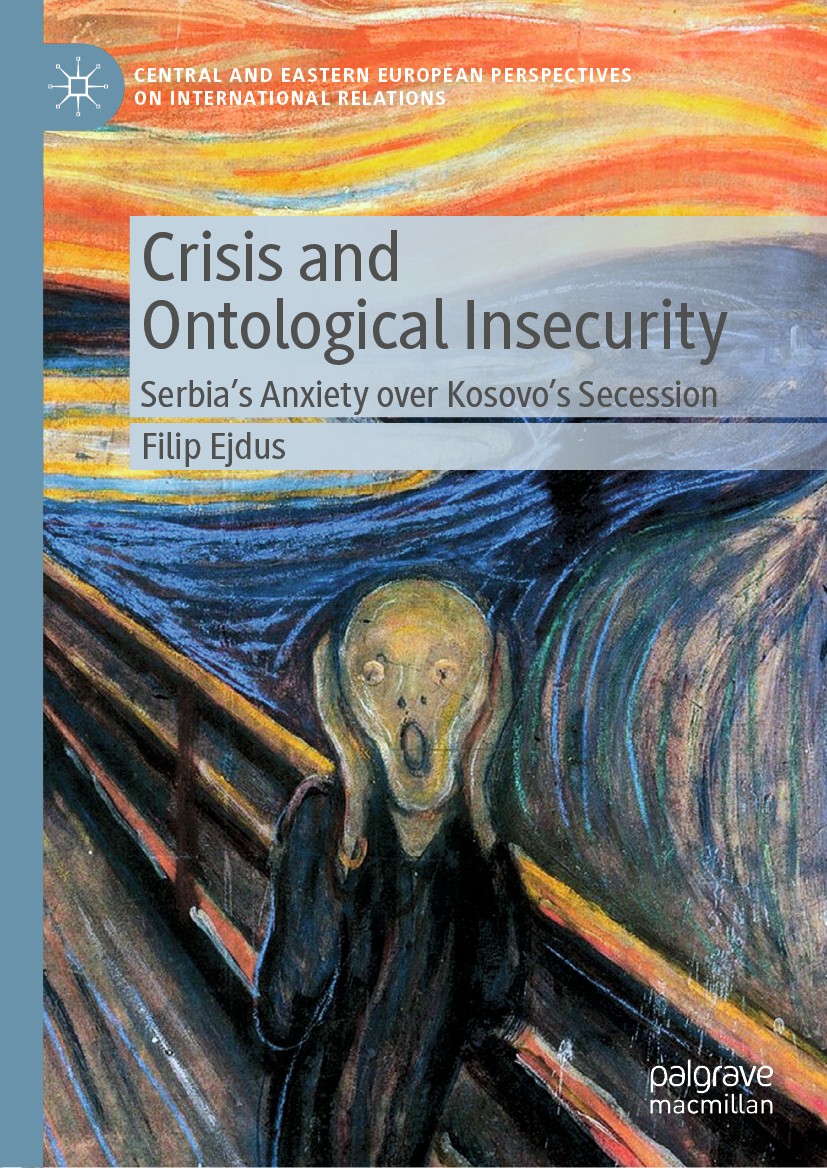| 书目名称 | Crisis and Ontological Insecurity |
| 副标题 | Serbia’s Anxiety ove |
| 编辑 | Filip Ejdus |
| 视频video | http://file.papertrans.cn/240/239843/239843.mp4 |
| 概述 | Develops a novel perspective on crisis, identity and attachment to territory in world politics..Argues that Serbia‘s seemingly irrational foreign policy behaviour is a form of ontological self-help in |
| 丛书名称 | Central and Eastern European Perspectives on International Relations |
| 图书封面 |  |
| 描述 | .This book develops a novel way of thinking about crises in world politics. By building on ontological security theory, this work conceptualises critical situations as radical disjunctions that challenge the ability of collective agents to ‘go on’. These ontological crises bring into the realm of discursive consciousness four fundamental questions related to .existence., .finitude., .relations. and .autobiography.. In times of crisis, collective agents such as states are particularly attached to their .ontic spaces., or spatial extensions of the self that cause collective identities to appear more firm and continuous. These theoretical arguments are illustrated in a case study looking at Serbia’s anxiety over the secession of Kosovo. The author argues that Serbia’s seemingly irrational and self-harming policy vis-à-vis Kosovo can be understood as a form of ontological self-help. It is a rational pursuit of biographical continuity and a healthy sense of self in the face of an ontological crisis triggered by the secession of a province that has been constructed as the ontic space of the Serbian nation since the late 19th century. . |
| 出版日期 | Book 2020 |
| 关键词 | Serbia; Kosovo; foreign policy; Kosovo‘s secession; irrational foreign policy; ontological crisis; securit |
| 版次 | 1 |
| doi | https://doi.org/10.1007/978-3-030-20667-3 |
| isbn_softcover | 978-3-030-20669-7 |
| isbn_ebook | 978-3-030-20667-3Series ISSN 2947-7980 Series E-ISSN 2947-7999 |
| issn_series | 2947-7980 |
| copyright | The Editor(s) (if applicable) and The Author(s), under exclusive license to Springer Nature Switzerl |
 |Archiver|手机版|小黑屋|
派博传思国际
( 京公网安备110108008328)
GMT+8, 2026-1-25 16:30
|Archiver|手机版|小黑屋|
派博传思国际
( 京公网安备110108008328)
GMT+8, 2026-1-25 16:30


